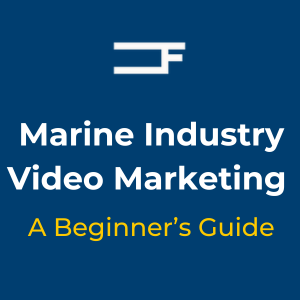The Next Steps For Your B2B-Marketing Videos
Previously, we discussed the best video genres to get started with b2b video marketing. In particular:
• The CEO Video Message
• The Tech Explainer
• The Customer Success Story
Find the article here below if you missed it. Now, what are some good formats once you have mastered these basics?
• The CEO Video Message
• The Tech Explainer
• The Customer Success Story
Find the article here below if you missed it. Now, what are some good formats once you have mastered these basics?
The Spot
a.k.a. the online commercial. TV commercials have been on air for decades. They will probably be around for a couple of more decades, even if linear TV viewing is declining. Spots are short, typically 15-60 seconds. They work best if they are produced to the highest standards. This requires professional actors and film crews, concept and writing. Typical ingredients are storytelling, beauty, empathy and often humor.
Online, audiences can directly interact with spots with the touch of a button. This has been a game changer for many B2C ads. On TV, these mostly serve to remind and reinforce the brand message. Online, many commercials are geared towards an immediate call to action, like “shop now!”.
This approach can work for B2B as well. Well presented to a highly targeted audience, a soft CTA such as “learn more!” can work beautifully. In other scenarios, the goal is broader: to create brand awareness and a first spark of interest.
Spots typically require high production value, as they are sitting in the early “awareness” stage of your customer’s journey. These production values come at a higher price tag– money well spent if you deliver to a large audience. A rule of thumb: allocate an advertising budget at least as high as the production budget. Alternatively, check out budget-friendly options below:
The “How To” or Tutorial Video
is a staple in B2B communications. Any product that is not self-explanatory needs some form of introduction or training. Your sales and support teams know all the questions your customers may have. Ideally, these should be answered in tutorial videos. Sales and support people are able to look at the product from the customer’s perspective, making this type of video a great starting point for your in-house video creation.
How-to's and tutorials are for customers who are considering your product or have bought it and now want to learn how to use it. These viewers have a longer attention span and are already familiar with the benefits of your product. A less polished in-house video can do the job.
The value of this type of videos is extremely high.
• Customers who know the product well are likely to be more satisfied. They may wish to buy more from your company, or recommend you to others.
• well-made and easily available tutorials will significantly reduce work loads for support teams of complex products.
• Customers who enjoy how-to videos during the purchase decision build up trust in your product, influencing the purchase decision.
With this strategic and commercial value, many companies opt to go for more polished how-to's and tutorials, created by video production companies, ideally featuring your sales and support teams.
Social Media Content
You will typically also showcase your higher end video content on Social Media. Social media tactics rely on regular postings, so you need more content. We do not expect perfection when we watch social media video. We want it up to date and personal. Here you can do great things in-house. If you have social media savvy staff, definitely make use of it.
Many of our clients do these videos completely in-house. We have trained some of them in video production basics. Others hand over the footage they shot, and rely on us for editing and polishing. Either way, get help with your online marketing strategy first.
The next thing to invest in would be video production training for your staff, in front and behind the camera. In the next issue of this newsletter, we will give you some practical tips for in-house production.
Thanks for your attention!
Best,
Gerrit Haaland
Creative Director
NAUTIC.FILM


